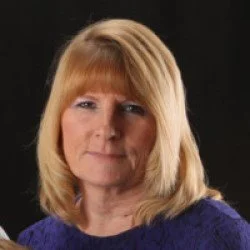Hearing Details Possible Solutions to LIBOR Transition
Written By: Joel Palmer, Op-Ed Writer
A House Financial Services Subcommittee heard testimony on April 15 regarding the impending dissolution of the London interbank offered rate (LIBOR) and the need for federal legislation to help in the transition.
Representatives of the Federal Housing Finance Agency (FHFA), Securities and Exchange Commission, the Treasury Department, the Federal Reserve, and the Office of the Comptroller of the Currency testified at the hearing.
LIBOR will expire for use in financial products in the U.S. in June 30, 2023. Fannie Mae and Freddie Mac ceased purchasing LIBOR-based ARMs and issuing LIBOR-based credit risk transfers at the end of last year.
“The LIBOR transition is the largest financial infrastructure change to date, surpassing in size and complexity the conversion to the Euro and the Y2K conversion,” said Daniel E. Coates, senior associate director of FHFA.
This is creating a potential problem because of the trillions of dollars in outstanding contracts, securities and loans that use LIBOR for interest rates.
This includes many adjustable rate mortgages, reverse mortgages and home equity lines of credit. About $1.4 trillion of the $223 trillion in U.S. LIBOR contracts are mortgages and other consumer loans. Many of these contracts do not have appropriate language to address the cessation of LIBOR.
Kevin Walsh, deputy comptroller, for the Office of the Comptroller of the Currency, testified that when LIBOR is retired, these loans will have to be reset to any fallback benchmark clearly stated in the loan document.
Coates testified on behalf of FHFA that the agency, with the help of Fannie Mae, Freddie Mac, and other stakeholders, has developed new fallback language supporting new ARMS. He said this language should reduce the uncertainty around newly issued LIBOR ARMs.
“This language describes more clearly how the coupon rate on the mortgage would be switched to a replacement rate should the coupon rate no longer be produced or be deemed unrepresentative,” he said.
Last year, the Consumer Financial Protection Bureau (CFPB) proposed a rule to amend Regulation Z of the Truth in Lending Act.
The proposed rule, which has not been finalized, provides a way under Regulation Z for a bank to transition from LIBOR without waiting for LIBOR to become unavailable as required under the current regulation.
The proposed rule also requires that change-in-terms notices be sent for any HELOC when LIBOR is replaced. CFPB also provided guidance on LIBOR transition matters that do not require amendments to Regulation Z, such as how the LIBOR transition will affect ARM origination disclosures or ARM interest rate adjustment notices.
In 2019, The Alternative Reference Rates Committee (ARRC), a group assembled by the Federal Reserve Board to identify risk-free alternative reference rates for LIBOR, created a framework for using the Secured Overnight Financing Rate (SOFR) for ARMs. SOFR measures the cost of borrowing cash overnight collateralized by Treasury securities.
A number of consumer organizations and agencies want more than just new rules and language.
In a letter signed by several organizations and addressed to the House Financial Services Subcommittee on Investor Protection, Entrepreneurship, and Capital Markets, concern was raised about using “fallback provisions,” which “will result in uncertainty, litigation, and harm to consumers, businesses, and investors.”
The state of New York has passed legislation that would allow contracts to shift to new rates recommended by regulators. The letter to Congress states that national legislation is needed to make a seamless transition away from LIBOR.
“We believe that federal legislation is critical and necessary to solve this problem,” the letter stated. “Only federal legislation can uniformly address all 50 states, and only federal legislation can address issues such as the need for narrow relief from certain federal laws.”
About the Author
As an NAMU® Opinion Editorial Contributor, Joel Palmer is a freelance writer who spent 10 years as a business and financial reporter and another 10 years in marketing for the insurance and financial services industries. He regularly writes about the mortgage industry, as well as residential and commercial real estate, investments, and retirement income planning. He has also ghostwritten books on starting a business, marketing, and retirement income planning.













































